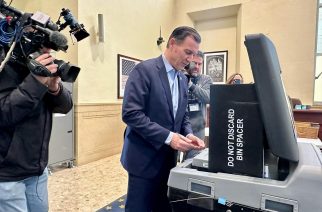
Gov. Andrew Cuomo has released emergency funding to county health departments to ensure that more New Yorkers get vaccinated against the flu in one of the worst seasons in recent memory.
The emergency funding will provide more funding at the local level to provide more vaccinations and be able to expand their outreach to daycares, senior centers, nursing homes and homeless shelters.
For the last nine weeks, the flu has been geographically widespread across New York with a 35 percent increase in lab confirmed flu cases and 2 percent increase in hospitalizations within the last week alone.
“I ask all New Yorkers to take advantage of this expanded access to flu vaccines and join us in slowing down and stopping the spread of this virus in the Empire State,” Cuomo said.
This season there have been 52,567 laboratory confirmed cases of influenza as of February 3, with a reported, 11,802 people being hospitalized and three pediatric flu-related deaths in New York State.
Last month, the governor signed an executive order that temporarily suspends the rule limiting the authority of pharmacists to immunize anyone under age 18. Now, because of the health crisis, pharmacists can vaccinate anyone age two and up.
As a result of the executive order, more than 5,400 children have been vaccinated in pharmacies, according to the Governor’s Office.
Additionally, Cuomo announced a 30-day budget amendment to provide flu vaccines to children regardless of their family’s ability to pay, a move to encourage pharmacies to enroll in the New York State Vaccines for Children Program.
There were 12,912 flu-related hospitalizations and eight pediatric deaths in New York last year. And a total of 25 pediatric flu deaths in New York State in the last four years with an average of 10,571 flu-related hospitalizations a year.
In fighting against the flu epidemic, the governor ordered the New York State Department of Health to take certain measures to educate all state employees and direct care providers regarding their role in flu prevention efforts.
The Department of Health will also be hosting statewide conference calls with the State Education Department to provide guidance on school-based flu prevention for superintendents and school nurses. The agency will also work with pharmacies to expand information by posting details on department and pharmacy websites and promote posting of educational materials.









